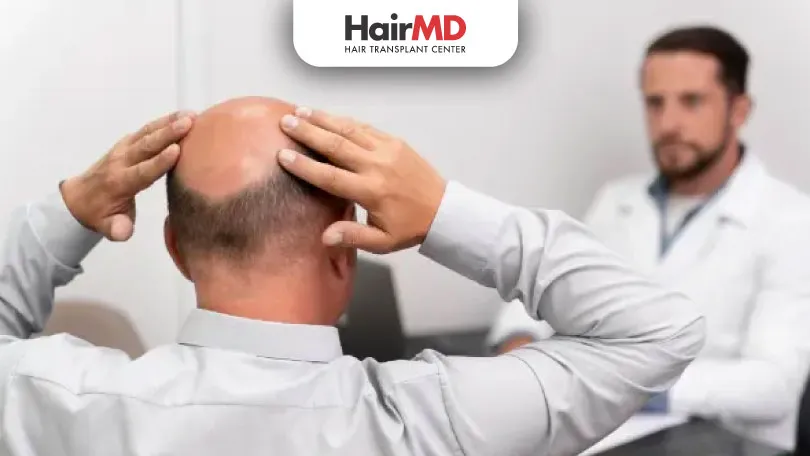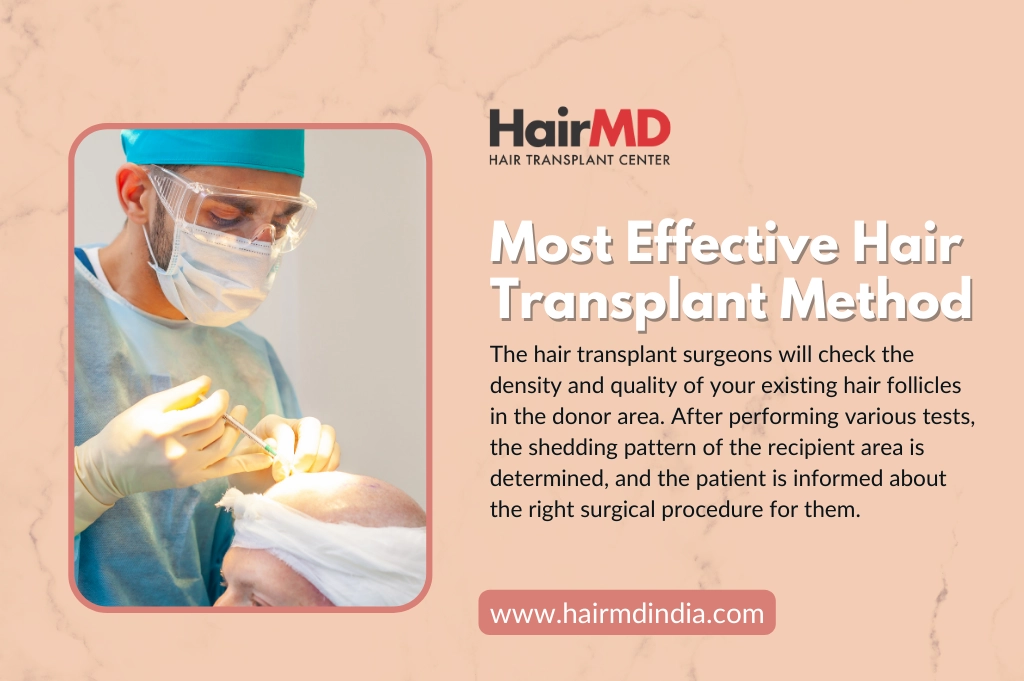Blog, Hair loss | | July 12, 2023

Are you experiencing hair loss? Get in touch with the best of our hair specialists in Pune to understand your hair condition. For a hair treatment or to get hair transplant, book an appointment with our dermatologists near you, call +919584584111.
Most people today are facing hair fall issues. The condition has become quite common among men and women of all age groups.
Hair loss can be a stressful experience! While a few stray hairs here and there are normal, more frequent or bothersome occurrences could be a sign of a more severe condition.
Here are five warning signs that will tell you when to see a dermatologist for hair loss.
It’s not unusual and actually normal to shed hair daily. Each day, the average person sheds about 50-100 hairs, according to the American Academy of Dermatology. It’s a part of the natural hair growth cycle.
However, if you notice clumps of hair, a significant increase in hair fall, excessive thinning of hair on the scalp or patchy hair loss, it’s time to see a doctor.
Sudden hair loss is frequently the result of an underlying condition that your doctor should address.

When our bodies face some kind of stress due to illness or when a new medication is added, the scalp and hair can get affected, resulting in accelerated hair shedding and loss.
Few medicines known to cause hair loss are – blood pressure medicines like beta-blockers, acne medicines, antibiotics, antidepressants etc. All these can temporarily disrupt the hair growth cycle causing hair fall. Furthermore, any hormonal medications taken for birth control or PCOS or menopause can also trigger hair loss.
Additionally medical conditions like anaemia, autoimmune disorders, hyper or hypo thyroid and some viral illnesses like dengue or covid etc can also cause severe hair loss.
Hair loss is most commonly associated with hormonal factors, including fluctuations in hormone levels and an increased sensitivity to testosterone and dihydrotestosterone (DHT)
The Mayo Clinic estimates that 55% of women face hair loss at the age of 40 – 70. This is frequently associated with menopause, when estrogen levels drop, causing changes in hair, including loss.
Other hormonal events, such as pregnancy and postpartum, PCOS etc are also known to affect hair growth cycle leading to hair loss

Many physical issues, including conditions of our skin, scalp, and hair, can be caused by stress.
There’s probably a link if you’ve noticed, that an increase in your stress levels can suddenly cause dryness, dullness, flakiness of your skin, scalp and hair.
Stress can lead your hair roots in sudden shock causing severe and exaggerated hair fall.
Food and nutritional changes can greatly impact everything from your hair to your toes. A good balanced diet is necessary for maintaining good health, similarly a deficient diet can cause illness including hair loss.
Diets and diet fads like – keto, paleo, and plant-based diets, among others, can have an impact on your overall health, including your hair — especially if you’re not getting enough essential nutrients.
Consult a nutritionist or a doctor before starting any new diet to reap maximum benefits !
If you are facing hair loss issues, it is essential you consult a hair doctor or dermatologist soon. Our experts at HairMD can help. We will assess your hair loss and suggest treatment according to your individual needs. Visit our clinic today!
Are you looking for hair fall solution? Get in touch with the best of our hair doctors in Pune to cure your hair loss. To book an appointment for a hair treatment or hair transplantation, contact our dermatologists near you, call +919584584111.


Blog, Hair loss|Dr Dhanraj Chavan|
July 12, 2023
Hair loss is an infuriating and troubling experience for both men and women. Fortunately, your dermatologist can assist you in determining what is causing your hair loss and how to...


Blog, Hair loss|Dr Dhanraj Chavan|
July 12, 2023
Table Of Contents What is Hair Transplant? Which is the best hair transplant technique? Benefits of FUE hair transplant If you think you are the only one facing a receding... 39518